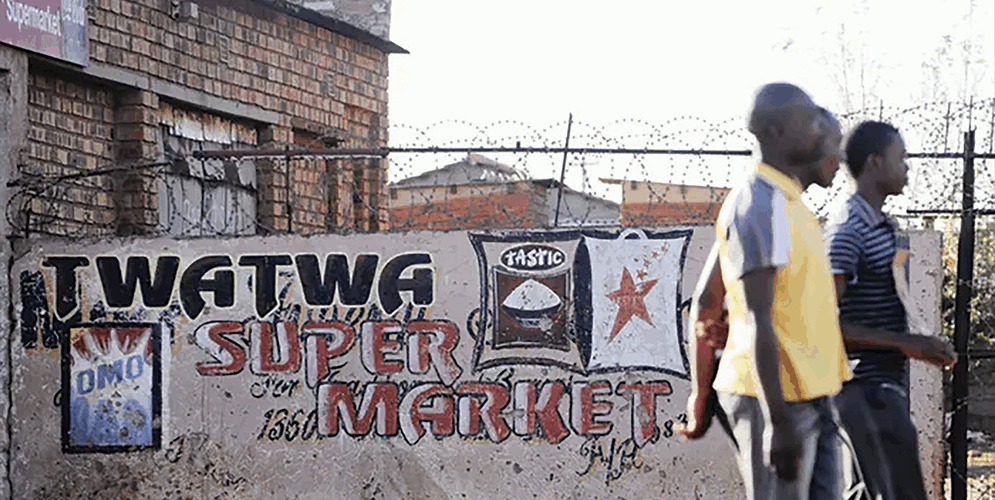SCENARIO: Findings of a new University of Cape Town study reveal a possible mental health crisis unfolding in communities grappling with poverty, unemployment and violence…
By WSA Reporter
More than half of teenagers in the Ekurhuleni township of Etwatwa are living with significant symptoms of anxiety and depression, and struggling to cope.
This is according to a new University of Cape Town study conducted by master’s student Busisiwe Hlatshwayo, whose research – under the supervision of Associate Professor Lauren Wild – also revealed that the ways used by the township’s teenagers to cope with stress might be making their struggles worse.
The study, published in the Journal of Child & Adolescent Mental Health, examined data from 415 adolescents from two secondary schools in Etwatwa, Gauteng, and found that 58% showed clinically significant levels of anxiety, while 55% displayed significant symptoms of depression.
“These findings reveal a possible mental health crisis unfolding in communities grappling with poverty, unemployment, and violence,” said Associate Professor Wild.
“Adolescents in South Africa’s townships face unique challenges, and their coping strategies can either protect or harm their psychological wellbeing.”
The study confirmed what many parents, teachers, and health professionals already fear: poverty and food insecurity were powerful drivers of adolescent mental health problems.
Adolescents who reported not having enough food were far more likely to experience symptoms of both depression and anxiety.
“This is about more than hunger. It is about the deep stress of not knowing whether your family will have enough to eat tomorrow – and what that uncertainty does to a young person’s mind,” said Hlatshwayo.
Material disadvantage and persistent racial inequalities in South Africa have long been linked to poor mental health outcomes. But this study goes further by showing how those structural challenges translate into the daily lives and coping mechanisms of teenagers.
The research also found that girls reported more symptoms of depression and anxiety than boys. This mirrored global trends, but in South Africa the stakes were especially high. Girls faced greater risks of interpersonal stressors, sexual violence, early pregnancy, and HIV infection.
Social expectations also play a role: boys are encouraged to view challenges as opportunities, while girls are more likely to see them as threats.
Hlatshwayo said: “Gender socialisation makes a difference. Girls tend to ruminate, replaying stressful experiences in their minds, which increases their risk of depression and anxiety.”
The study’s most notable contribution is its examination of coping strategies. Adolescents often employ various methods to manage stress, though not all are effective.
Maladaptive coping strategies – including substance use, behavioural disengagement, self-blame, denial, and venting – were all linked to worse mental health outcomes.
Hlatshwayo noted that substance use impaired judgment and prolongs stressful experiences, deepening emotional pain. Behavioural disengagement, essentially giving up, was especially common among girls and associated with higher depressive symptoms.
Self-blame, while sometimes motivating problem-solving, often led to greater distress when applied to uncontrollable problems.
Denial, refusing to acknowledge difficult realities, was tied to increased anxiety. Venting, while providing temporary relief, tends to fuel rumination, which worsens depressive symptoms over time.
“These are young people doing their best with limited tools. But sometimes, the tools they reach for can trap them in cycles of distress,” she said.
In contrast, the study did not find strong protective effects for coping mechanisms usually considered positive, such as planning, active coping, positive reappraisal, or seeking help.
This surprising result challenged the assumption that teaching adolescents “better” strategies automatically improved mental health. Hlatshwayo shared that the effectiveness of a coping strategy depends on the nature of the stressor.
“In situations of deep poverty where control is limited, planning may feel futile. Coping is not one-size-fits-all – it must match the realities young people face,” she said.
The findings highlight the urgent need for schools to play a frontline role in addressing adolescent mental health. Hlatshwayo said that school-based interventions were cost-effective, far-reaching, and capable of equipping adolescents with healthier coping skills.
Examples from other countries showed promise. In Mauritius, the Resourceful Adolescents Programme improved coping skills, while in the United States, the Building a Strong Identity and Coping Skills programme reduced reliance on avoidance in low-income teenagers.
South Africa has recently developed the Health Action in Schools for a Thriving Adolescent Generation programme, which promotes mental health and stress-coping as core components. According to Hlatshwayo, expanding and strengthening such initiatives could be transformative.
“Adolescents are not powerless,” she said. “With the right support, they can learn to manage stress in ways that build resilience rather than destroy it.”
While the study is rooted in South Africa, its implications extend globally. Around the world, young people in disadvantaged communities face overlapping crises of poverty, inequality, and poor mental health.
“What we see in Etwatwa is not unique. It is part of a larger global story about what happens when societies fail to provide security and opportunity to their youth,” Wild said. Hlatshwayo cautioned that the study has limitations.
“It was cross-sectional, meaning it cannot prove whether maladaptive coping causes mental health problems or whether existing distress drives reliance on harmful strategies. The poorest schools in the township were also underrepresented, suggesting that the true picture may be even worse.”
Wild concluded: “Half of the teenagers in this study are grappling with depression and anxiety. If we ignore this, we risk losing a generation to despair.
But with school-based interventions, community support, and policies that tackle food insecurity and inequality, we can give these young people the chance to thrive.”





























